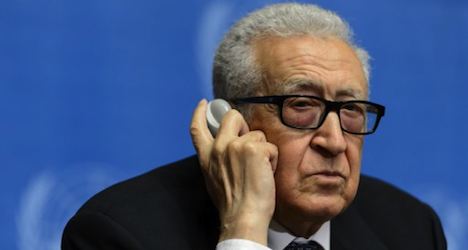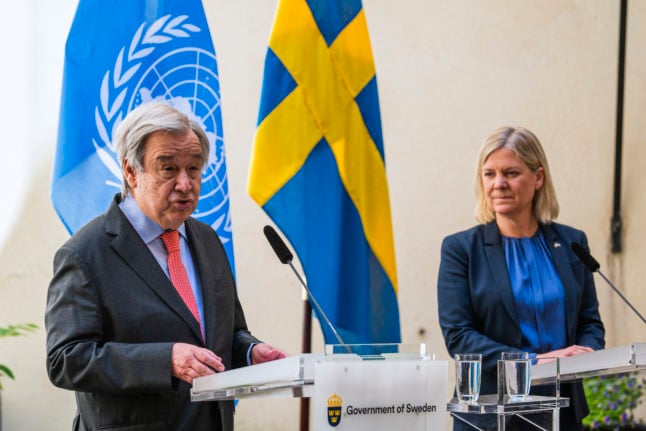Part of the blame lies with the structure itself of the UN, where the “great powers” are permitted to be above international influence and the boundaries of nations do not align with the world’s natural groupings.
Still, part of the deficiency of the process lies in the approach used by the mediator in the Syria talks in Geneva.
UN mediator Lakhdar Brahimi apologized over the weekend to Syrians for failing to make greater progress in the Geneva talks and criticized Syrian President Assad’s representatives for refusing to discuss his stepping down as part of a potential agreement.
There are other ways to proceed and arrive at a solution that is mutually acceptable to all the stakeholders, if only the parties and especially the mediator keep an open mind about how to get to the end goal.
Brahimi appears to be rigid in the outcomes he is willing to consider — for him, the only option seems to be for Assad to ultimately step down.
And because this is not negotiable for the Syrian government, the talks are at a stalemate.
But one must consider the history of the region to get a bigger picture of possible solutions.
The “nation” of Syria was cobbled together unnaturally by colonial occupiers.
To reach a sustainable political resolution to the conflict the borders must be redrawn to reflect the natural groupings.
The ancestral Alawite homeland stretches from northern Lebanon to the Hatay Peninsula in Turkey, west of the Orontes River.
Northeast Syria is part of the natural Kurdish homeland, which is divided across four countries.
The Syrian, or Syro-Arabian Desert, is the northern part of the Arabian Peninsula, east of the Orontes River and west of the Euphrates, which has been inhabited historically by Bedouin tribes — part of a predominantly desert-dwelling Arab ethnic group — and Damascus is located on an oasis in this desert.
And the northwest region of Syria, including Aleppo, historically has been a multicultural area that includes Druze, Christians, and Jews that given international protection could be safe, multicultural, and tolerant once again.
Leave Assad in office if that is what his people want — it should be for them to decide.
But redraw the borders at their natural locations — which moves the Alawite leadership out of the capital.
— Elizabeth Barrett
(Elizabeth Barrett is a lawyer and expert in mediation based at the law school at the University of California, Berkeley, California.)



 Please whitelist us to continue reading.
Please whitelist us to continue reading.
Member comments